Then & Now: Rodney Fields
Compiled By Dave Brandon
(Photo Courtesy NU Media Relations)
 Rodney
Rodney
Fields played two seasons at Nebraska, lettering in 2000
and 2001. Fields, who will always be remembered as an
aggressive and physical defender, played a key role in
Nebraska’s backcourt for both Danny Nee and Barry
Collier, as he was among the leaders in rebounds,
assists, and steals on the teams in which he played.
HHC recently flagged down Rodney to
see what he is up to these days, as well as what he
remembers about those in Lincoln.
HHC: Rodney, thanks
for taking some time to talk Husker Hoops.
RF: No problem, I’m
happy to do anything that helps promote the program.
HHC: As a senior in
high school at Tampa Bay Tech in 1996-1997, you averaged
25 points, 12 rebounds, and 6 assists per game, and
actually committed to Nebraska, which many people don’t
know. However, academic issues forced you to attend
Tyler JUCO in Texas. Before we talk about your times in
Tyler, tell us what made you commit to Nebraska clear
from Tampa?
RF: Basically it was
Nebraska’s commitment to me. The summer before my junior
year in high school, Jimmy Williams came down and gave
me some workout tips, as far as individual things and
what I could do during the summer. I felt that for him
to come down and individually work with me was pretty
darn loyal. It was pretty consistent throughout my
junior year as well, and we stayed in contact by phone
within the NCAA rules. Even by mail, and even after I
signed, he always sent me letters and workout tips. That
really showed Nebraska’s loyalty to me, and I also liked
the fact that the university put a lot of emphasis on
their academic program.
HHC: Once you
arrived at Tyler for the 1997-1998 season, you were part
of a team that sent five players to the Division One
ranks, and yourself averaged 14.3 PPG and 7.1 RPG. Talk
about what you learned while at Tyler, both on the court
and off the court. How tough was it not playing
Division One ball?
RF: Tyler was
basically a stepping-stone and foundation for Nebraska.
It had really good coaches in Fred Ricke, who later went
to Memphis, and Kyle Keller. Those guys motivated me and
didn’t swing me one way as far as school was concerned.
I give a lot of credit to those guys for their help.
HHC: When you arrived
in Lincoln, you had surgery for a stress fracture in
your right leg, which had to be very difficult and very
painful. Talk about your redshirt season, and the
obstacles you had to overcome to become healthy again.
RF: It was pretty
tough; I’d never been hurt before outside of a sprained
ankle. When I got the news, it definitely hit home,
because when you’re not ever hurt, and then all of a
sudden your hurt, it crushes your confidence. So, I said
to myself, “What do I do about this? Do I sulk or do I
just accept that’s what God had in store for me?” I knew
it was a greater plan and it wasn’t my time yet, so I
accepted the latter and knew the following year I’d be
stronger, smarter, and more in shape. So, I used the
redshirt year to my advantage and watched my teammates
as they ran through the offenses and defenses. That
really enabled me to pick up a lot of tips from a lot of
people.
HHC: Your first
season on the court at Nebraska was 1999-2000, which was
a tough season for many reasons. While you started 19
games and it had to be great to finally be on the floor
at Nebraska, many feel the team greatly underachieved,
as you finished just 11-18 and 4-12 in the Big 12. Would
you agree with the previous statement, that you greatly
underachieved as a team?
RF: Yes, I’d agree
with that, because we had the players to do some very
promising things. We just kind of fell short… The
chemistry was there, but it was a lot of other factors
off of the court, I think. Some guys were unfocused;
some had some family issues, etc. So, there were mild
distractions that became more of a factor once the
season got into play.
HHC: Many people
criticize Danny Nee for “giving up” in 1999-2000, as far
as recruiting players and working with your team. What
is your response to that statement, and did the team
become pretty aware that he was on his way out before it
happened?
RF: Before I even
came to Nebraska, I had heard a lot of rumors about
coach Nee’s job security. But, I had a lot of faith in
Danny Nee, because we had a great nucleus. We had Cookie
Belcher, Larry Florence, Lou Truscott, and Cary Cochran
stroking from deep. But yes, I saw some things before
the season started and while the season was going, as
far as a lot of pressure on coach Nee. I mean, put
yourself in his shoes; he’s been there for fourteen plus
seasons, and now he’s losing a lot of respect after what
he did for the program. His back was against the wall,
and he needed W’s, which wasn’t easy to do because of
the conference and injury to Cookie.
I give Danny a lot of credit
because he withstood a lot of criticism, and I don’t
think he gave up at all, so I disagree with that
statement. He gave everything to us, including an
unlimited supply of energy, and he worked hard and never
quit watching film. If he was giving up, then what would
be the use in watching film and putting all the energy
in? He came everyday and was there early, teaching plays
and watching film. I think he gave 110% every day and it
was sad to see him go, since I was coming in and
recruited by him.
HHC: Before we move
onto your last year at Nebraska, we have to ask you
something that we ask all players who played for Danny
Nee. Tell us a classic Danny Nee story or two.
RF: (laughs) I knew
that was coming… Well, my story kind of involves him and
me. I had been out partying the night before a practice,
and I think we had a morning workout and afternoon film
session. I dosed off for a quick second during the film
session, and he got in my face and yelled at me, and
said “If you don’t get your act together, you’re going
to be a garbage man Fields. You guys all will, you need
to get your education and listen.” (laughs) There were a
million stories with coach Nee, you know, the typical
fast talking New Yorker, but he always stood behind us
and took care of us.
HHC: (laughs) Very
nice. Anyway, your senior season at Nebraska was
2000-2001, and the team finished 14-16 with a very
respectable 7-9 mark in the Big 12. Talk to us about
that team, and what it was like going through the
coaching change to Barry Collier.
RF: The team went
through a tough transition; I mean, we lost a coach who
everyone was recruited by. Every player definitely lost
something, whether it was confidence or comfort, not too
mention the worry of a new coach coming in and bringing
his own players along. The players that were there for
three years, and then Collier for one year, we found it
hard because coach Nee and Collier were totally
different. Coach Collier was a straight arrow; you knew
where he was coming from. Then you had coach Nee who was
a fast talker, you kind of knew where he was coming from
but you didn’t. He gave it to you straight sometimes and
sometimes he didn’t.
So, it was rough transitioning to
Collier, but we did some promising things, as we had a
nucleus that was able to play with anyone in the Big 12.
It was hard though, because Collier came in with his
system, we had to readjust, and we had new players along
with some old ones that needed additional assistance
when it came to running plays. But, we made the most of
it and did as well as we could have.
HHC: Talk about Barry
Collier and what you thought of your season with him. Is
he the kind of guy you would have signed with if he had
recruited you?
RF: Probably so.
Barry Collier is very similar to Bobby Knight, in my
opinion, without all of the crazy antics. He put a lot
of emphasis on discipline, results, and the idea that
what you put forth is what you get - if you work harder,
you get more out of it. I learned a lot from Collier the
hard way, as I tested his system quite a few times. But,
I got a lot out of Collier, he was a disciplinary and
wanted a lot for his players. He loves his players and
is willing to do anything for his players if they stay
on a straight arrow.
HHC: And before we
get to the “now,” tell us your favorite memories of
Nebraska. Do you still keep up with the program?
RF: I keep up with
the program pretty well on the Internet, and better now
thanks to your site. I also came back for the
Pittsburgh football game, and typically make it back to
two or three basketball games a year.
My favorite memory at Nebraska was
winning the Puerto Rico tournament my senior year. We
beat Miami at Miami and they had a couple of players who
went to the NBA. I think we won all of those games by a
total of like three points or less. It was special
because we really came together as a team, and it’s too
bad we didn’t have that chemistry consistently
throughout the rest of the season with Barry. We
definitely encountered a lot of speed bumps during that
trip and at Nebraska, but we got through it.
HHC: What about
today? Where will we find Rodney Fields, and what is he
up to?
RF: I’m not active
with basketball right now, but I do continue to work out
and keep my body in shape, because that’s been a very
big part of my life for a long time. I’m working
clinical social work for a school program called Saint
Joseph Orphanage in Cincinnati, Ohio. We house orphans
and wardens of the state based on their situation. We
provide care services for individuals from six to
seventeen.
HHC: Sounds like
everything is going well. Would you be willing to take
e-mails from the readers at
[email protected] if we set you up an
account and tell you how to check it.
RF: Most definitely.
I’d love to talk to the fans and give back to the
university in any way that I can.
HHC: Alright Rodney, thanks a lot for
catching up with us. We will always have mad respect for
you for playing through the horrible leg injuries you
had.
RF: Hey, thanks a lot for having me. We’ll
catch up over a beer sometime.<script type="text/javascript" language="javascript">

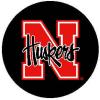
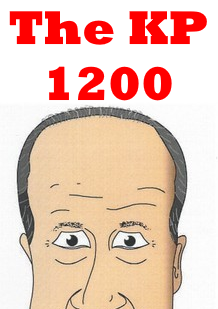
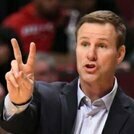
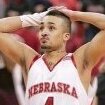
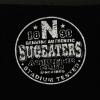

Recommended Comments
There are no comments to display.
Join the conversation
You can post now and register later. If you have an account, sign in now to post with your account.